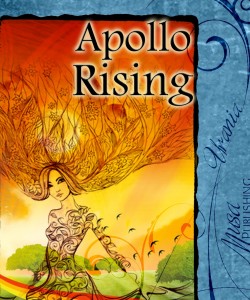What do you do when your brainchild is stillborn? What do you do when the story you’ve spent months-years-in crafting and writing, the story you’ve almost literally sweated blood over, the story you love more than all your other literary children . . .
Just . . .
Doesn’t . . .
Work . . .
Last week I gave another writer a beta read on the second draft of a science-fiction novel he’s writing. (All third-party pronouns in this post are generic, so don’t bother trying to guess who it was. Not telling.) I was able to report that the writing was really good. I was also forced to report that the novel had issues that I felt kept it from being publishable. (Said issues mostly lay in world building, but aren’t germane to this discussion.)
My friend accepted my thoughts with grace and class, and agreed that the novel definitely needed more work. We parted still friends; which, to me, is perhaps the sign of a premier friend-the ability to accept criticism of a personal labor of love and still be warm to the critic.
A couple of days after our conversation, this thought occurred to me: Should I have told him to cut his losses and move on to something new?
At first I was shocked that the thought had even crossed my mind, but then I realized what had prompted it.
Rule Three of Heinlein’s Rules of Writing states: You Must Refrain from Rewriting, Except to Editorial Order. Now most of us understand that rule not to mean that Thou Shalt Write Only First Drafts, but rather, that to spend excessive amounts of time rewriting and polishing a work is ultimately counterproductive and contra-indicated for building income. (A writer I once read comes to mind who said that after he finished the first draft of each book, he would then spend a year reviewing every single word in the draft, one by one, considering whether it was the best word in that place. Eep.)
So that was part of what was in the back of my mind, because I knew my friend had already spent a pretty fair amount of time on this work, and I had just indicated a lot of it needed to be taken apart and put back together differently, which would take a lot more work.
But there was something else in the back of my mind.
You see, I finished my first novel in 2002. Before you congratulate me on that, I have to say I started it in 1977.
Twenty. Five. Years.
I was young. I was stupid. I was working solo, without the benefit of knowledgeable readers. I had started it in a fit of temper after finishing a particularly bad SF novel which I threw across the room.
I wrote for a few weeks, then bogged down in the story. I gave it up for a while, went and read some more good science fiction and fantasy, then came back and tried again.
That was the pattern for the next twenty-five years: write until I became frustrated, then go away for months, or even a year or so, but eventually circle back to it, frequently starting over again. By the time I finally drove it to a conclusion, I estimate I wrote over a half million words. The finished manuscript was well under half that length, and it was too long.
It didn’t sell.
I gave it another full revision/rewrite/polish.
It didn’t sell.
Although I had never heard Robert Sawyer’s addendum to Heinlein’s Laws (Rule Six: Start Working on Something Else), I intuitively knew that I couldn’t just fixate on that novel; I couldn’t just hover over it and continue to try to pump life into it. That way led to stagnation and sterility. So I put it on the shelf, and moved on to other things, and before long did find my author’s voice and began selling professionally in 2007.
I still harbor love and affection for that first story, that first novel. It still resonates in my mind. But I realized something this week as I considered my friend’s novel: mine will probably never be published, because I have too much new stuff I want to write to consider going back and trying one more time to build an edifice of words on a faulty foundation.
In the end, I answered my question about my friend’s novel: “No.” It wasn’t a warranted question. It wasn’t my call to make. And besides, there’s no doubt in my mind he can address the issues and write the story.
In the end, I answered my question about my novel: “Yes.” With a certain amount of sadness, I let it go.
Rule Six: Start Working on Something Else.
Tomorrow.





